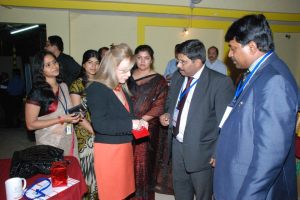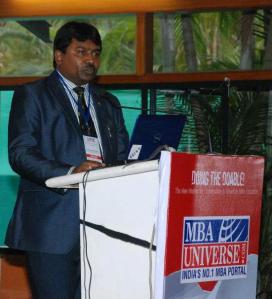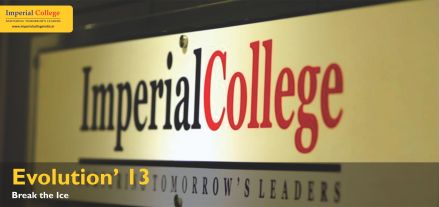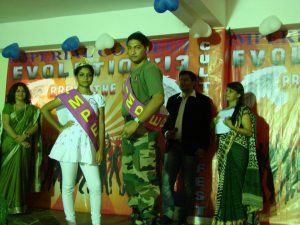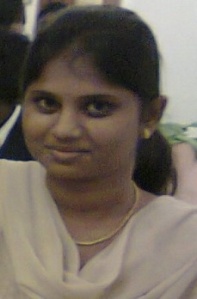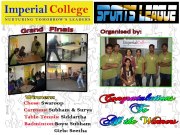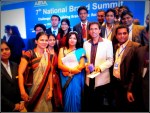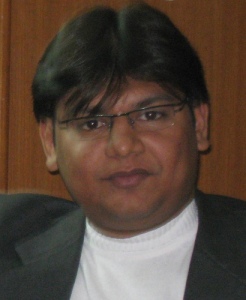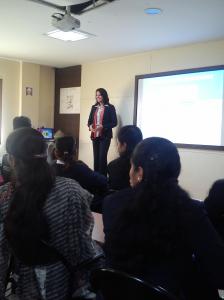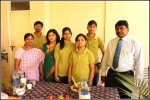“Rethinking MBA Education”: this was the theme of discussion in the 2nd Annual Director’s meet @MBAuniverse.com, Bangalore Round table. The event saw presence of eminent Management Gurus, Educational Experts, visionaries, CXOs and Directors of some of the premier business institutions of India. The event took place on 2nd of April, 2013 at Century Club, Bangalore.
The Meet witnessed presence of around 150 Chancellors, Vice-Chancellors, Presidents, directors, deans and decision makers from leading universities and B-Schools from Bangalore, Hyderabad, Chennai, Mysore, Madurai, Coimbatore and the entire Southern region.
Prominent speakers present in the meet were: Mr. D. Shiva Kumar (President-AIMA), Mr. Manish Sabharwal (Chairman-Team Lease Services), Mr Abhijit Bhaduri (Chief Learning Officer, WIPRO Group & Author of ‘Don’t Hire the Best’), Prof J Philip (Founder, XIME & Founder-President, AIMS and Directors), Prof William Verdini (Associate Dean and Director of External Relations, MYRA and Prof Emeritus, Arizona State University).
The session started with the inaugural speech of Mr. Shiva Kumar on the theme of “Management Education at the Crossroads”. Highlighting the fact that management education has played a pivotal role in Indian business scenario in last few decades, he said, “Management education is about organizing simplicity in complexity. It makes you action orientated and reflects on issues. It creates entrepreneurs. It generates respect for consumer, customer, and partnerships”. Putting forth the urgent need to address the employability and introduction of skills in education as required by the market, Mr. Manish Sabharwal emphasized the need to rethink their “core purpose”. “B-schools that are only focusing on employability, whereas vocational training are facing a tough time”, he said.
“B-schools need to create more ‘depth’ in their curriculum”, Mr. Abhijit Bhaduri said, “A mere focus on soft-skills and other cosmetic tools will not help”. Prof. J Philip in his speech stated that there is no cause of worry for well-meaning B-schools, who are offering quality education. Prof William Verdini delivered a thought provoking speech on ‘International experiences on building B-school & corporate relationships & its application in Indian context’. Dr. Sylvia Ann Hewlett (Harvard Business Publishing author of 11 books on Talent Management & HR) in her key note address spoke about woman empowerment from business management perspective and the need to recognize and promote woman managers.
Following the discussion, Dr. Hari Krishna Maram, Founder CEO of Imperial College of Business Studies-Bangalore offered the vote of thanks for the successful event. The event was also attended by students from Imperial college of Business Studies-Bangalore who also contributed to the event by taking care of the registration process. Moreover, it was a good learning and intellectually stimulating session for the students and faculties of Imperial College of Business Studies-Bangalore.
“Rethinking MBA Education”: this was the theme of discussion in the 2nd Annual Director’s meet @MBAuniverse.com, Bangalore Round table. The event saw presence of eminent Management Gurus, Educational Experts, visionaries, CXOs and Directors of some of the premier business institutions of India. The event took place on 2nd of April, 2013 at Century Club, Bangalore.
The Meet witnessed presence of around 150 Chancellors, Vice-Chancellors, Presidents, directors, deans and decision makers from leading universities and B-Schools from Bangalore, Hyderabad, Chennai, Mysore, Madurai, Coimbatore and the entire Southern region.
Prominent speakers present in the meet were: Mr. D. Shiva Kumar (President-AIMA), Mr. Manish Sabharwal (Chairman-Team Lease Services), Mr Abhijit Bhaduri (Chief Learning Officer, WIPRO Group & Author of ‘Don’t Hire the Best’), Prof J Philip (Founder, XIME & Founder-President, AIMS and Directors), Prof William Verdini (Associate Dean and Director of External Relations, MYRA and Prof Emeritus, Arizona State University).
The session started with the inaugural speech of Mr. Shiva Kumar on the theme of “Management Education at the Crossroads”. Highlighting the fact that management education has played a pivotal role in Indian business scenario in last few decades, he said, “Management education is about organizing simplicity in complexity. It makes you action orientated and reflects on issues. It creates entrepreneurs. It generates respect for consumer, customer, and partnerships”. Putting forth the urgent need to address the employability and introduction of skills in education as required by the market, Mr. Manish Sabharwal emphasized the need to rethink their “core purpose”. “B-schools that are only focusing on employability, whereas vocational training are facing a tough time”, he said.
“B-schools need to create more ‘depth’ in their curriculum”, Mr. Abhijit Bhaduri said, “A mere focus on soft-skills and other cosmetic tools will not help”. Prof. J Philip in his speech stated that there is no cause of worry for well-meaning B-schools, who are offering quality education. Prof William Verdini delivered a thought provoking speech on ‘International experiences on building B-school & corporate relationships & its application in Indian context’. Dr. Sylvia Ann Hewlett (Harvard Business Publishing author of 11 books on Talent Management & HR) in her key note address spoke about woman empowerment from business management perspective and the need to recognize and promote woman managers.
Following the discussion, Dr. Hari Krishna Maram, Founder CEO of Imperial College of Business Studies-Bangalore offered the vote of thanks for the successful event. The event was also attended by students from Imperial college of Business Studies-Bangalore who also contributed to the event by taking care of the registration process. Moreover, it was a good learning and intellectually stimulating session for the students and faculties of Imperial College of Business Studies-Bangalore.
(To know more about Imperial College of Business Studies, visit our website or follow us on Facebook)


